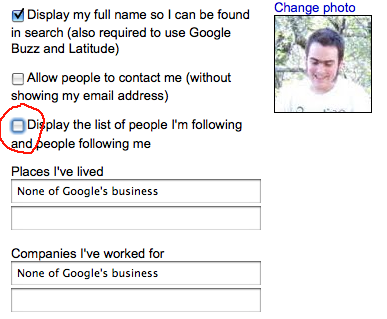Congratulations to Mozilla Messaging for finally finishing Thunderbird 3! In honor of last week’s Thunderbird 3.0 release, I’d like to do a series of blog posts on my experience migrating from GMail to Thunderbird over the past couple months.
Don’t get me wrong, I love a lot of things about GMail. Treating the conversation, instead of the individual message, as the basic object was a big step forward in e-mail interfaces. Good, fast search plus vast disk space changed the way I think about my email archives.
However, this October I ran into some problems with GMail. I had set myself up both to receive email sent to my mozilla.com address in my GMail inbox and also to be able to send from my mozilla.com address through the GMail interface. Although it had the minor drawback of mixing my work and private lives together in a single extremely busy inbox, that seemed like a fair price for the increased convenience.
In October, though, I realized that some of my coworkers hadn’t been getting emails from me. It took me a while to notice: I thought everyone was just too busy to respond to what I had written. But by asking a few people to search their inboxes for mail from me, I confirmed a hunch – most of the mail I had sent from my mozilla.com address through the GMail interface over a period of a couple of weeks had not been delivered. It hadn’t gone to their spam folders, either – it had just silently disappeared.
Everything had been working fine up until October, so what happened? I’m still not exactly sure. One theory is that my Mozilla mail was being sent through gmail.com, but the “from” address said “mozilla.com”. A “from” address that doesn’t match the sending server is a common sign of spam, so maybe a change in spam-filtering policy made our relay servers start throwing out my messages. On the other hand, maybe it had to do with me changing my Mozilla LDAP password, and not remembering it to update the password stored in my GMail settings for the external account.
Either way, it was the worst kind of software failure: the silent kind! Because GMail’s interface reported that the messages had been sent, I never stopped to think that maybe they hadn’t. It’s easy to forget that email was never designed to be a highly reliable protocol. Sometimes you get bounce messages back when something goes wrong, but it’s never guaranteed.
So I don’t particularly blame GMail for what happened. It would have been nice to get more notification, but the problem was really outside of their knowledge or control; I was expecting too much from a web application. It is in the nature of a web application that the user gives up a certain amount of control in exchange for convenience. Often a good trade. But for something as personal and essential as my email? My experience with the lost messages drove home the price of not having that control.
Besides, it was about time I started eating Mozilla’s own dogfood for my email.
I’ve been keeping a notes file on my transition to Thunderbird. In my next few posts I want to share with you some of its pros and cons, tips for using it effectively, things that are cool about its interface and things that could use improvement.




